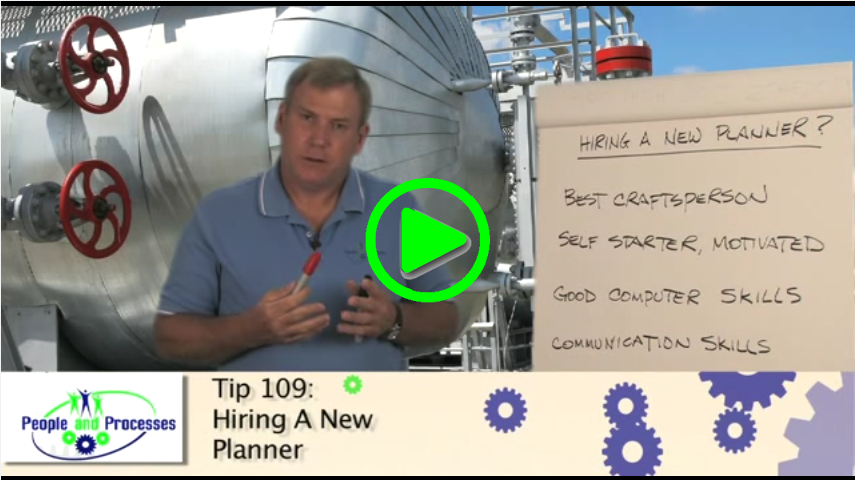|
They need to have skills in the craft they're planning for. In addition, they need to be skilled in that craft. They need to understand the task steps and how they would approach the job. Remember, the goal of the planner scheduler is to drive wrench time or to increase craft efficiency.
Also, obviously they'd be working independently. Many times they'll be going out researching jobs on their own so they need to be a self starter, to be motivated.
In addition to that, they need good computer skills. Think about it. They'll be working with Word documents or something similar in creating the job plans. In addition to that, they'll need access to your CMMS, the Computerized Maintenance Management System, or EAM. If it's something more complicated like SAP as an example, they need to have a high level of skill regarding the software package itself.
|

